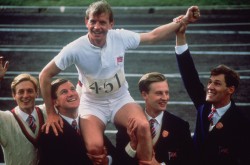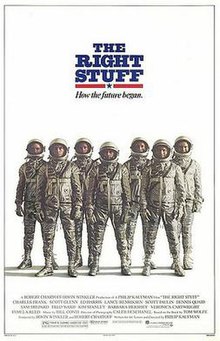A few tunes to tide over my own impatience and inner fan till later in the week.
What am I listening to these days to accompany my
While we are still back in the 60s, how did I miss this all these years? Even with the whole history of music and entertainment just about sitting in a box on your desk, it is difficult to stumble upon the kinds of things you want if you haven't heard of them before or have forgotten about them. There is a large amount of randomness in this way, and increasingly time spent searching for something entertaining or otherwise of pleasing interest is squandered as reliably as panning for treasure on the beach. But then occasionally you find something that for whatever reason you like. In the world that I was born into--mid-Atlantic, urban, ethnic Catholic, in my case straddling the line between the traditional working class and the bottom rungs of the professional classes--approximations of these chicks would have been my dating pool. I doubt I would have done very well even if this demographic had not been exploded and such husks of it as survived fractions of the social pools that seemed to exist prior to my being born. I don't want to give the impression that I want to force anyone to return to the kind of social universe where most people had to associate exclusively with their 'own kind'. But as someone who has not interacted socially with any group of which I feel a part in many, many years, I am fascinated that I might ever have been born into and naturally absorbed and integrated into one that was distinct and ready-made. This is probably not how it works, unless you are too stupid or devoid of personality to be of interest to anybody dynamic; but this is how it looked to me to work among my older Philadelphia relatives, though I never saw them enough to move easily in that society myself, for my father, his own relatively prestigious place in it secured, spent most of my childhood determined to avoid it and its rituals and institutions as much as he possibly could.
Speaking of dating pools...people from places like Texas sputter and guffaw and act incredulous when you try to explain this to them, but when you go to high school in a liberal-tinged city in New England, this is more or less what the attractive girls look like, and yes, you learn, or become acclimated to liking that look.
Back to the 60s, or maybe the 50s, though I think the early 60s. I've been getting a little more into Elvis lately. Not overboard, just a song here or there, especially some the ones that aren't totally played out. This apparently was an old song when he did it, with previous versions by Mahalia Jackson, among others. Mahalia Jackson's version is doubtless better, but having listened to it I think I'll need to work up to it, to whatever extent that is possible with a soul that is doggedly mediocre (at best). Right now I actually prefer Elvis's less soaring rendition.
I heard this song on the radio the other day. I had never had any idea what the title was or who the group was--they are like the 5th Dimension, but obviously they aren't--and the only lyrics I could decipher clearly enough to go with were "Can you dig it baby" which did not seem to me enough to distinguish it in a search from a thousand other songs, but actually that phrase brings you right to this song, the title of which is 'Grazin' in the Grass' which anybody who listens to the song should be able to pick out as a major line, but somehow I was unable to nail this down.
As a mildly amusing sideline I'm trying to remember some of the most pretentious videos of the 80s. I'm pretty certain this one is going to be #1, even though my investigations have barely gotten under way.
This one is close for the opening sequence ('Au revoir, Terence...au revoir, Terence...au revoir, Terence') alone, though there is a touch of humorous flair in its outrageousness that redeems it a little. By the way, did you know that Terence Trent D'Arby is now known as Sananda Maitreya. Me neither. I don't see how the new name is an improvement on the old one, but then I wouldn't, would I? Joking aside, this guy had a pretty good look going on back in the day. This is what we had to compete against in the 80s. Everybody is a fat slob and/or a geek nowadays.
I'm just on a roll now. Let's take it back a little (because to me 1987 is practically current). Shep & the Limelights. Good song from 1961.
Doubtless right about now everybody is wondering, "Where are the Lennon Sisters?" Have no fear, I wouldn't leave them out. This festive clip from the occasion of the show's being on the road in Chicago is from '63, when Dianne was out on her 4-year motherhood-induced hiatus, but we still have Peggy at the top of her game. Of the four, she was probably the conventionally best-looking and most thoroughly feminine, the best singer, the nicest, and she even has the easiest and most athletic motion when tossing a fake snowball. In short, she was a really a catch.
I like these outfits (from '67) and Dianne looks extra great here. Peggy is lovely too, as always, though I believe she had just had a baby not long before. Hardcore 60s music fans will probably assert that they are butchering a classic song by a real artist. Their approach to mainstream 60s pop songs is definitely...different, but--they are so very, very good in their presentation and sticking to their established musical personality no matter what, and I am so fully taken in by them that I don't even get what the problem could be.
Hopefully I will have the next post up within a few days.























:max_bytes(150000):strip_icc()/Coup_de_foudre_poster-57c5b42c5f9b5855e5cf861d.jpg)

















